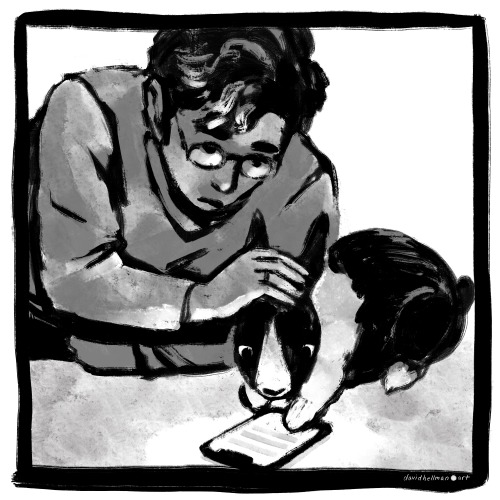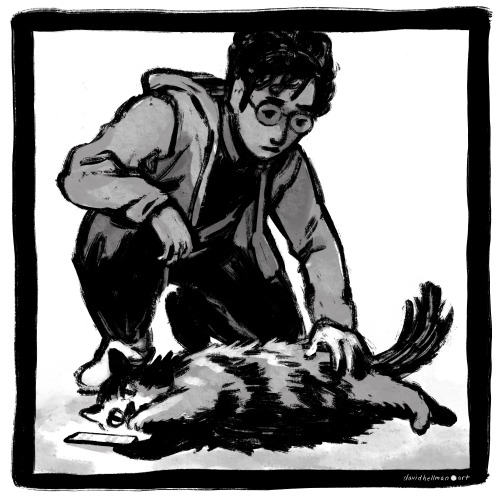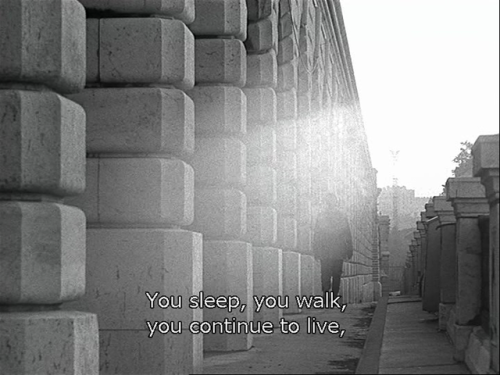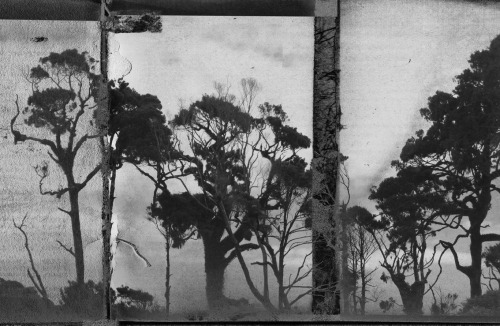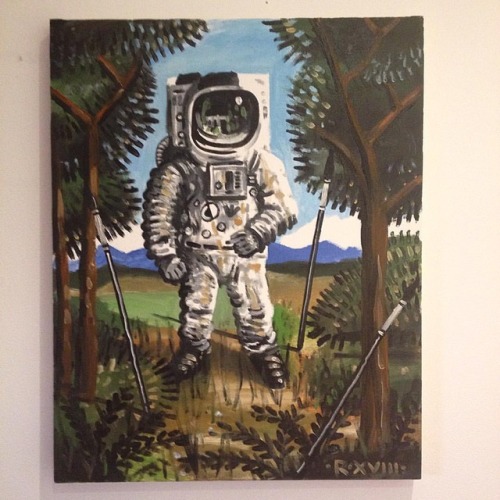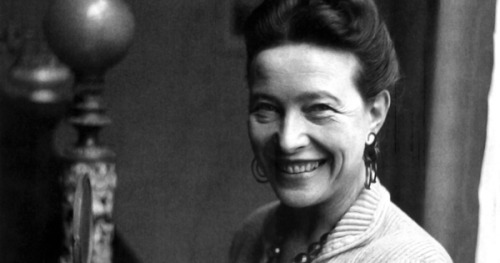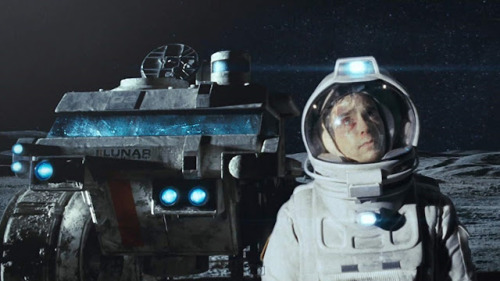#alienation
What emotion do you create from?
hey everyone take my uquiz i finished and then forgot about for months. it’s 28 questions with 15 results and there’s no lyrics or pop culture references so it should be friendly to non-americans and people like me who are just out of touch
“One thing Jibang and I have been into for a while is the recent fascination with liminal space. There’s a way in which it speaks to a great metaphysical predicament for our species: that being individuated but necessarily interdependent, we rely our structures to mediate this incongruity but these structures too often grow beyond our control. When they do, it’s as though we are working for them rather than the other way around. Whether they’re political, legal, cultural, economic, etc., they were built for a purpose, but that purpose tends to drift as the operation of the structure-for-itself takes precedence. This carries a number of implications that we’ll explore in this video”
Some of my works have been included in the project and I am truly honored. The video is very dense and in-depth, tough stuff.
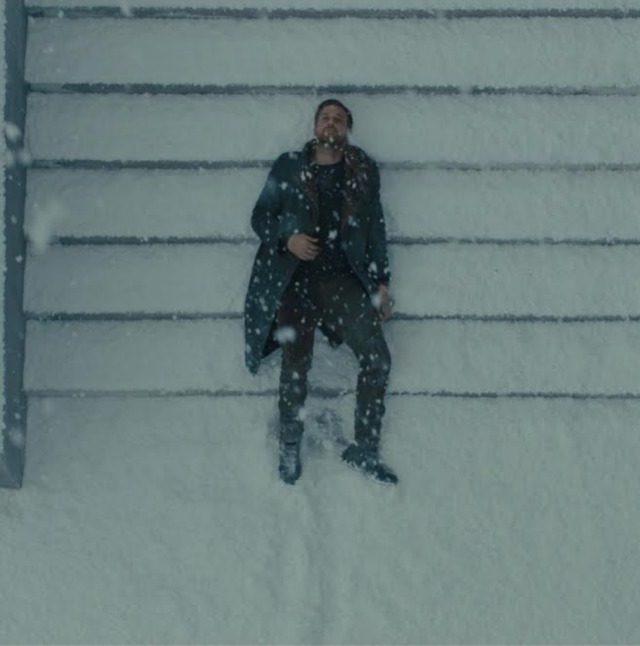
Absolute mid-week crisis mood. (Ryan Literally Me Gosling)
Blade Runner 2049
“The Self Destructive Man” - Waking Life
Suburban Gothic
Motifs: Suburban neighborhoods, Streetlamps, Grocery stores, Convenience stores, Fluorescent lighting
Values: Alienation, Capitalist critique, Facades, Uncanny
Colors: White, Black, Gray, Blue, Red, Green

What emotion do you create from?
hey everyone take my uquiz i finished and then forgot about for months. it’s 28 questions with 15 results and there’s no lyrics or pop culture references so it should be friendly to non-americans and people like me who are just out of touch
SCA PROJECT SPACE
SACRIFICIAL BODIES | TOM ISAACS
Disappearance, suffocation, collapse, and death. These are the sufferings of the alienated and depressed body. Or are they, perhaps, the means by which suffering can be overcome? Deprivation and self-harm are time-honoured tools used in spiritual disciplines from around the world and throughout history. They are also recurring motifs in the field of body art.
In his PhD examination exhibition ‘Sacrificial Bodies’, Tom Isaacs demonstrates his deep and critical engagement with the problems of alienation and depression through his body art practice. Drawing from his research on ritual and psychoanalysis, Isaacs has developed four performances that interrogate the medium of body art and explore its potential efficacy as a response to these formidable deadlocks.
Date: 13 April - 20 April, 2022
Open by appointment
Email: [email protected]
Location: SCA Project Space, Room 201B, Building A12, Science Road, Macleay Building, The University of Sydney.
Post link
The reason we feel alienated is because the society is infantile, trivial, and stupid. So the cost of sanity in this society is a certain level of alienation. I grapple with this because I’m a parent. And I think anybody who has children, you come to this realization, you know—what’ll it be? Alienated, cynical intellectual? Or slack-jawed, half-wit consumer of the horseshit being handed down from on high? There is not much choice in there, you see. And we all want our children to be well adjusted; unfortunately, there’s nothing to be well adjusted to!
— Terence McKenna
That feeling when you’re in the woods and know you couldn’t survive there for more than a day. Separate from nature, our true nature.
——
Becoming the Alien 2018 oil on canvas 75cm x 60cm
——
#oiloncanvas #oilpainting #painting #pittura #pitturaitaliana #contemporaryart #contemporaryartist #contemporarypainting #arte #arteitaliana #artecontemporanea #artecontemporaneo #artcontemporain #kunst #nycart #hamont #canadianart #torontoart #montrealart #vancouverart #arthistory #portrait #moonlanding #astronaut #alien #alienation #spacesuit
Post link
First — ever — encounter with the term “communism” appears in Hölderlin’s late 18th c. text the “Communism of Spirits”…. I’m convinced with Albernaz’ account above… and the details and history of the whole rigmarole with German idealism and what is confusingly called “spirits” is fleshed out in a careful and very interesting way… But, as a historical materialist, there is nothing airy or nebulous about the possibility of communism…
people seem to have trouble understanding why i’m an anti-capitalist, so i’m going to try and put it into simple, real-life terms.
i work at a restaurant. i make $12 an hour, plus tips. minimum wage where i live is relatively high for my country - the national minimum wage is $7.25/hr, and has not been raised since 2009. before taxes, working full time, my yearly income is about $22,000 a year. ($25,000 if you count tips)
at my job, we sell various dishes, with an average price of about $10-$15. we get printouts every week detailing how much money we made that week; in one week, our restaurant makes about $30,000. (one of our other locations actually makes this much on a daily basis!)
i’m not going to go into details, but after the costs of production (payroll for employees, rent for the building, maintenance, and wholesale food purchasing) are accounted for, the restaurant makes an estimated profit of $20,000 per week.
this profit goes directly to the owner, who does not work at this location. the owner of my restaurant has actually been on vacation for a few months, but still profits from the restaurant, because they own it. i have met the owner exactly twice in my year of working here.
to put this into perspective, the owner of this restaurant earns in 2 days what they pay me in one year. and that’s just from this single location - the owner has several other restaurants, all of which make more money than the one i work at. this ends up resulting in the owner having an estimated net worth of tens of millions of dollars, even after accounting for the payroll for every single worker in their employ.
now, i have to ask you: does the owner of my restaurant deserve this income? did they earn it? did their labor result in this value being created?
the naive answer would be “yes”; the owner purchased the location and arranged for the raw ingredients to be delivered, did they not?
the actual answer is “no”. the owner may have used their initial capital to start the location, but the profit is a result of my labor, and the labor of my co-workers.
the owner purchases rice at a very low bulk price of about 25 cents a pound. i cook the rice, and within a few minutes, that pound of rice is suddenly worth about $30. the owner did not create this value, i did. the owner simply provided the initial capital investment required to start the process.
what needs to be understood here is that capitalists do not create value. they use the labor of their employees to create value, and then take the excess profit and keep it.
what needs to be understood is that capitalists accrue income by already HAVING money. the owner of my restaurant was only able to get this far because they started off, from the very beginning, with enough money to purchase a building, purchase food in bulk, and hire hundreds of employees.
that is to say: the rich get richer, and they do so by exploiting the labor of the poor.
the owner of my restaurant could afford to triple the income of every single person in their employee if they felt like it, but this would mean that they were generating less profit for themselves, so they do not.
the owner of my restaurant pays me the current minimum wage of my area, because to them, i am not a person. i am an investment. i am an asset. i am a means to create more money.
when you are paid minimum wage, the message your boss is sending you is this: “legally, if i could pay you less, i would.”
every capitalist on the planet exploits their workers for their own gain. every capitalist, even the small business owners, forces people to stay in poverty so that the capitalist can profit.
This is a really good post
Simone de Beauvoir’s garden of meaning
What is existentialism? For Simone de Beauvoir (b. 1908) the discipline is a response to the human need to find a ‘place in a world turned upside down’. It cannot be explained succinctly. Still, let’s have a go.
Pyrrhus and Cineas
In her 1944 essay Pyrrhus and Cineas Beauvoir looks to explain humanity’s quest to find meaning by way of analogy.
Pyrrhus has a plan:
‘We are going to subjugate Greece first,’ says Pyrrhus.
‘And after that?’ asked Cineas.
We will vanquish Africa.’
‘After Africa?’
‘We will go onto Asia … ’
‘And after that?’
‘We will go on as far as India.’
‘After India?’
‘Ah! I will rest.’
‘Why not rest right away?’
According to Beauvoir, Cineas’ question haunts our projects. For why do anything? What’s the point? We’re only going to end up where we started.
However, it’s only Pyrrhus who leads an authentic life. Whereas many people fail even to question their lives, he directs himself towards goals, having the imagination to forge something for himself from the world.
Pyrrhus doesn’t leave to return home, where he started: he leaves to conquer; then to conquer again … Each time he decides a new end. Each time he ‘transcends’ his situation.
‘The paradox of the human condition is that every end can be surpassed, and yet, the project defines the end as an end.’
The garden
The values we draw from our projects are never intrinsic, ready-made, or universal. To believe they are is to possess bad faith.
‘By identifying himself with his sex, his country, his class, with the whole of humanity [or God], a man can increase his garden, but he increases it only in words … [T]he fly on the stagecoach claims he is the one who led the carriage to the top of the hill.’
We give the world meaning through our engagement with it, an act which is accomplished with freedom and subjectivity. We throw ourselves towards ends with uncertainty: the price of leaving the world of ennui and inertia behind us. But, by choosing the locations and the limits of our projects, we snatch ‘the world from the darkness of absurdity’.
This garden must belong to me; I cultivate it. It even transcends me when I die.
‘I am enclosed within it until death because that garden becomes mine from the moment I cultivate it.’
It matters that our values are not given to us. My garden cannot be merged with the sterile void of the Universe, a passive equilibrium.
Being is not fixed to things: being is fixed to itself in a mode of transcendence. Like Pyrrhus’ journey, projects don’t end: ends are surpassed by other ends. Conquer or rest: it doesn’t matter which you choose. Just choose!
⁂
‘Is that my business? What does India matter? And what does Epirus matter? Why call this soil, this woman, these children mine? I brought these children into the world; they are here. The woman is next to me; the soil is under my feet. No tie exists between them and me. Mr Camus’s Stranger thinks like this; he feels foreign to the whole world, which is completely foreign to him … The inert existence of things is separation and solitude.’
Post link
The Philosophy of Moon
Moon (2009) is a quietly disturbing sci-fi. Through the crisis of one man we are asked to ponder some deep philosophical questions, not just about him but about ourselves—all without being bombarded with unnecessary action.
Sam Bell’s reality is shaken to its core in Moon. Instead of disregarding an event as a glitch and moving on, Sam follows the scent of suspicion to agitate and uncover something bleak. He marches out to the Moon’s silent and eerie surface and uproots it—for the sake of truth.
Uncomfortable and confounded by the answers he receives, bothered by his subsequent physical and mental decay, we can only watch on and ask: ‘Wasn’t darkness better than the truth?’
⁂
Read more here. There is plenty of philosophy to find therein: ethics, metaphysics, and existentialism. Expect discussions of human cloning, personal identity, and purpose.
Post link
Two Against the World by Ernst Ludwig Kirchner, 1924.
Dystopian authors such as Aldous Huxley and George Orwell proposed that the greatest threat to a totalitarian system would be romantic love.
In Brave New World, children are inculcated with the belief that all bodies belong to everyone. Sex is not allowed to be a form of intimacy. Instead, it serves as a means for reinforcing the prevailing social order.
For the same reason, sex is repressed in Orwell’s 1984: relationships create private loyalties, which ferment rebellion and weaken loyalties to the state.
Conflict frequently turns up as a theme in Kirchner’s paintings. Sometimes he depicts inner struggles while, in other works, his interest is a perceived battle between personal freedom and a staid, suffocating environment.
For Kirchner, there is already a totalitarianism of conformity lurking underneath the veneer of western civilization. Creators and lovers have to be against the world to survive in this hostile society.
How would Kirchner fit in a state controlled by national socialists? Well, you can guess the answer.
In 1933, the Nazis branded his art as degenerate. In 1937, they destroyed or sold off 600 his paintings.
In 1938, Kirchner died in front of his house from a self-inflicted gunshot wound. He was 58.
Post link
The reason we feel alienated is because the society is infantile, trivial, and stupid. So the cost of sanity in this society is a certain level of alienation. I grapple with this because I’m a parent. And I think anybody who has children, you come to this realization, you know—what’ll it be? Alienated, cynical intellectual? Or slack-jawed, half-wit consumer of the horseshit being handed down from on high? There is not much choice in there, you see. And we all want our children to be well adjusted; unfortunately, there’s nothing to be well adjusted to!
— Terence McKenna



